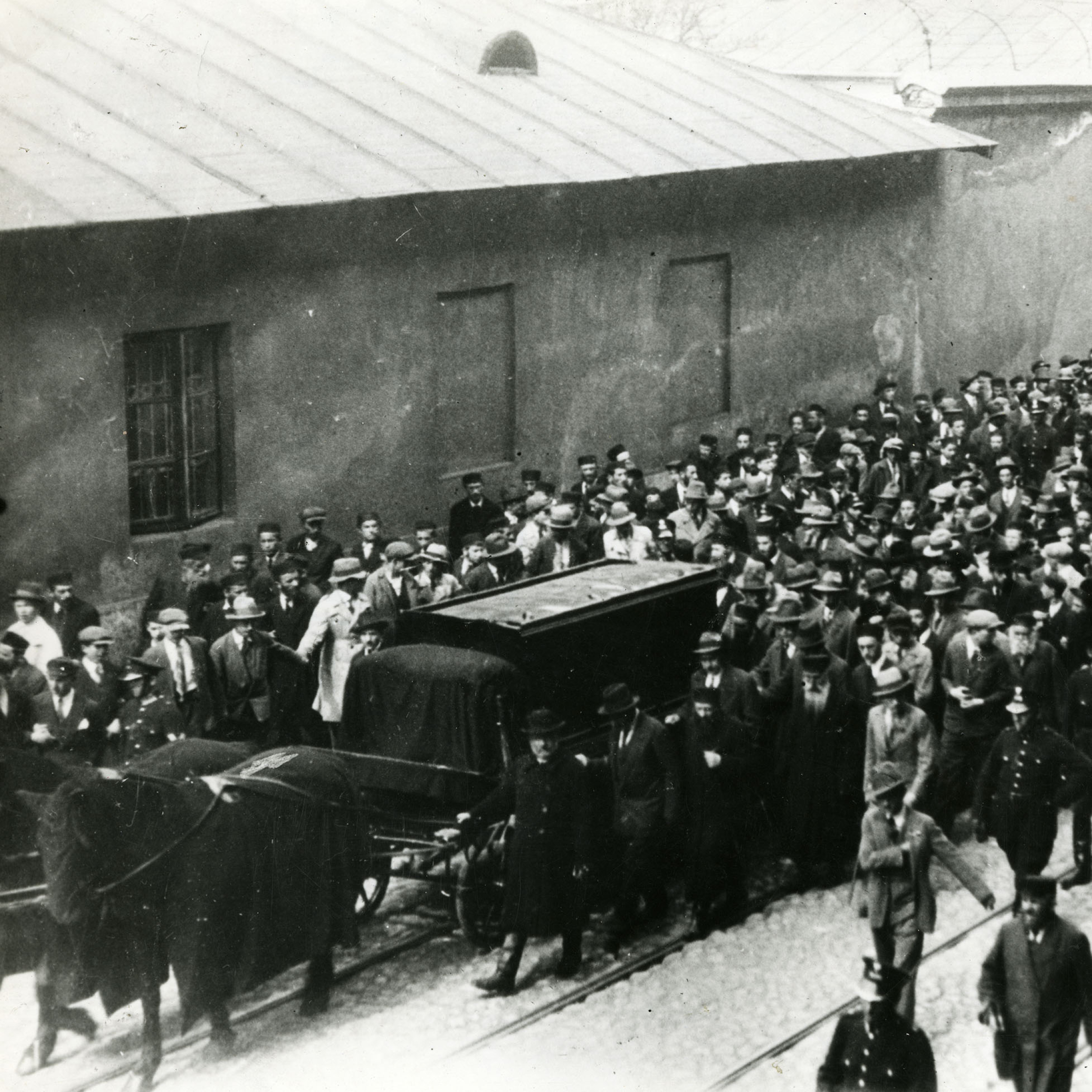Between the Living and the Dead: Considering Tradition in the Jewish Cemeteries of Poland, 1918-1945

|
Max Weinreich Fellowship Lecture in Polish Jewish Studies
The Aleksander and Alicja Hertz Memorial Fellowship and the Samuel and Flora Weiss Research Fellowship Admission: Free |
The Jewish cemetery has long been a site guided by Jewish law and traditional ritual practice. However, in the early twentieth century, pressures of modernity and urbanization in Poland strained traditional practices at the Jewish cemetery. In this talk, Alison B. Curry will examine how politics, modernity, and tragedy altered traditional uses of Jewish cemeteries in Poland.
While during the interwar period specific aspects of funerals, burials, and cemetery usage relied less and less on Jewish tradition and law, with the start of the Second World War, caring for bodies after death became both a priority and a triviality. Handling the ever-increasing numbers of the deceased in the ghetto meant that, in many cases, various death traditions were abandoned altogether. On the other hand, the sanctity of Jewish tradition and ethics emboldened many activists to call for returns to traditional practices of funeral and burial during the Holocaust.
In this talk, Curry argues that the Jewish cemetery became a central space for negotiation of identity – a place where the living considered their own Jewishness, reflected in that of the dead.
About the Speaker
Alison B. Curry is a doctoral candidate in History at the University of North Carolina at Chapel Hill. Previously, she received her M.A. in Holocaust and Genocide Studies from Gratz College and a Graduate Certificate in Digital Public Humanities from George Mason University. Curry’s dissertation research focuses on the ritual, spatial, and functional uses of Jewish cemeteries in Poland between 1918 and 1945. Currently, Curry is a Saul Kagan Fellow in Advanced Shoah Studies as well as the 2022-2023 Max Weinreich Center Fellow in Polish Jewish Studies. Her research has also been supported by the Carolina Center for Jewish Studies, the Association for Slavic, East European & Eurasian Studies (ASEEES), and the Memorial Foundation for Jewish Culture.




